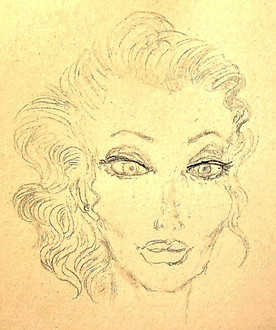
Intercultural
Reflections & Poems
A poetic and psychoanalytic vision of life abroad.
A space for contemplation, where themes such as identity, belonging, migration and the richness of different cultures intertwine.

"Fremd bin ich eingezogen, fremd zieh ich wieder aus"
This excerpt is the first line of the poem "Gute Nacht", which opens the song cycle "Winterreise" ("Winter Journey") composed in 1827 by Franz Schubert, with text by the poet Wilhelm Müller. Translated from German, it means:
"I came as a stranger, and I leave as a stranger again."
The phrase reflects a deep feeling of alienation and loneliness. The protagonist of the song, a traveler , expresses the feeling of being a foreigner or displaced, both when arriving and when leaving.
This theme of estrangement and emotional exile permeates the song cycle, which deals with the inner and outer journey of someone facing heartbreak and the coldness of winter, both literal and figurative. And how many of us expats or immigrants can relate to this coldness we encounter when we find ourselves in foreign territory?
The "foreigner" here can symbolize emotional uprootedness and the inability to find a place of belonging, feelings we are all too familiar with throughout our journeys around the world.
Reinventing cultural and personal heritages abroad
“Was du ererbt von deinen Vätern hast,
"Erwirb is, one is to be satisfied"
This excerpt is from Goethe, taken from the work Faust , one of the most important works in German literature. The full quote, translated into Portuguese, would be something like:
"What you inherited from your parents,
conquer it to possess it."
This phrase has a profound meaning in the context of Goethe's work and philosophy. He is suggesting that although we may inherit values, knowledge, culture or possessions from our ancestors , this alone is not enough.
To truly own and value these inheritances, we need to work for them, make them our own through personal effort, reflection, and transformation . It is as if he were saying that true ownership, whether of material or immaterial goods such as knowledge, requires active and personal engagement .
Song of Exile - Romantic Longing
"My land has palm trees,
Where the Sabiá sings;
The birds that chirp here,
They don't chirp like there.
Our sky has more stars,
Our floodplains have more flowers,
Our forests have more life,
Our life more loves.
In thinking, alone, at night,
I find more pleasure there;
My land has palm trees,
Where the Sabiá sings.
My land has beauty,
I don't find any such here;
In thinking – alone, at night –
I find more pleasure there;
My land has palm trees,
Where the Sabiá sings.
God forbid that I die,
Without me going back there;
Without enjoying the delights
That I can't find here;
Without even seeing the palm trees,
Where the Sabiá sings."
First Songs, 1843
Goncalves Dias
This work is one of the best-known examples of Brazilian romanticism, and expresses the feeling of longing and desire to return to the homeland .
Written by Gonçalves Dias when he was away from Brazil, in Coimbra, it reflects the romantic ideal of a deep connection with one's homeland , something that many expatriates and migrants can identify with in the context of displacement .
Thus Spoke Zarathustra
"No one becomes aware of himself without conflict; we need conflict. Until we are living according to our own choice, we cannot know ourselves. We must be able to choose for ourselves."
Jung, Nietzsche's Zarathustra, Seminars 1934 and 1935, IV, 10/31/34
These are Jung's words when reading Nietzsche's work "Also Sprach Zarathustra", published in 1885. This work is a fundamental reference for the development of Jungian Analytical Psychology, as it has the same characteristics as the Jungian method of psychological, intuitive and constructive interpretation.
Sketches
"Leve seus diarios e pinturas
para o outro lado do mar quando partir
e assim que voce vai lembrar de quem e
quando estiver perdida nas novas cidades
e e assim que seus filhos vao saber que
voce ja viveu uma vida inteira antes deles"
O que o Sol faz com as Flores, Rupi Kaur
Para Jung, a criação artística é uma ponte para o inconsciente, uma expressão do Self em sua busca por totalidade.
Em cada nova cidade, carrego meus desenhos como símbolos vivos dessa jornada interna e externa, um reflexo de quem fui e de quem ainda estou me tornando.
Um dia minha filha vai olhar para meus desenhos, e verá não apenas as cidades onde vivi, mas as muitas versões de mim que floresceram nelas. E eles vão me permitir navegar por vários mares, sempre ancorada em mim mesma.

"Fremd bin ich eingezogen, fremd zieh ich wieder aus"
This excerpt is the first line of the poem "Gute Nacht", which opens the song cycle "Winterreise" ("Winter Journey") composed in 1827 by Franz Schubert, with text by the poet Wilhelm Müller. Translated from German, it means:
"I came as a stranger, and I leave as a stranger again."
The phrase reflects a deep feeling of alienation and loneliness. The protagonist of the song, a traveler , expresses the feeling of being a foreigner or displaced, both when arriving and when leaving.
This theme of estrangement and emotional exile permeates the song cycle, which deals with the inner and outer journey of someone facing heartbreak and the coldness of winter, both literal and figurative. And how many of us expats or immigrants can relate to this coldness we encounter when we find ourselves in foreign territory?
The "foreigner" here can symbolize emotional uprootedness and the inability to find a place of belonging, feelings we are all too familiar with throughout our journeys around the world.